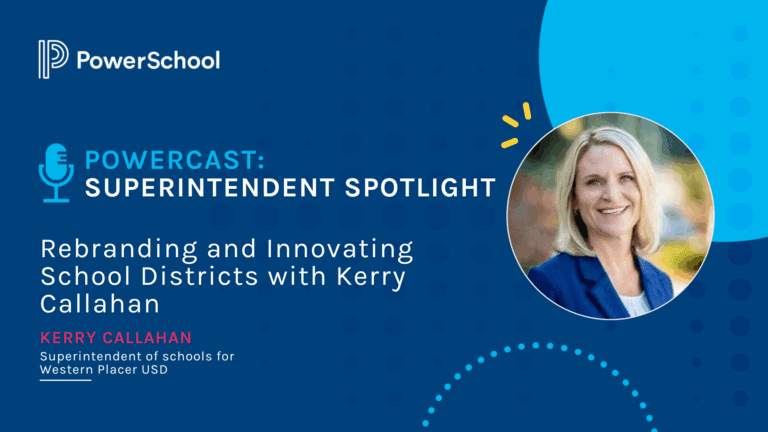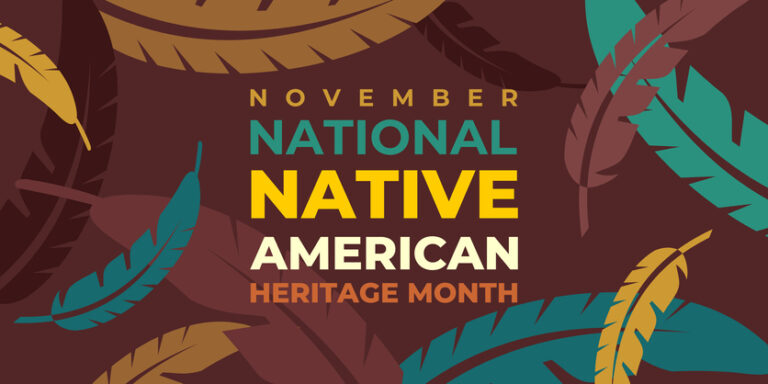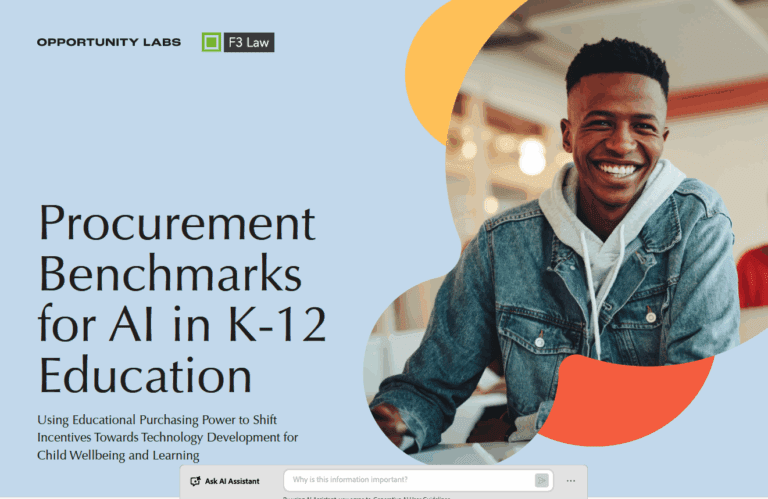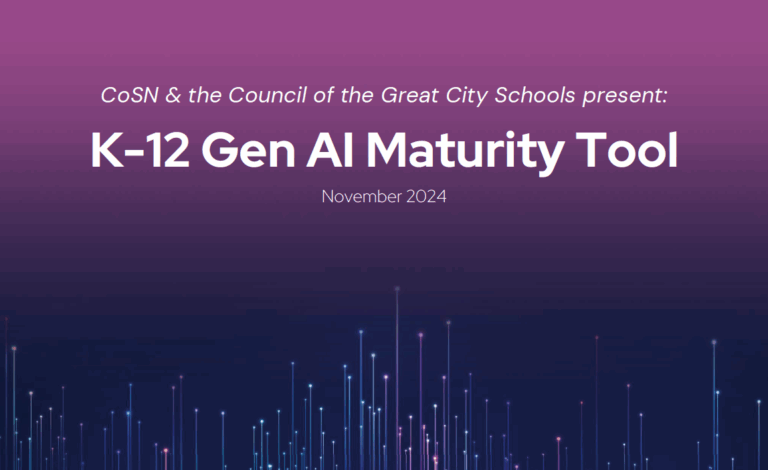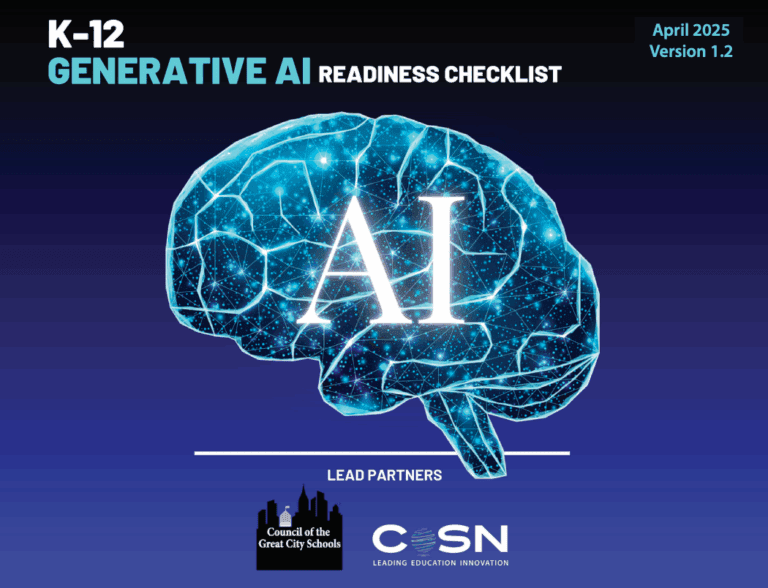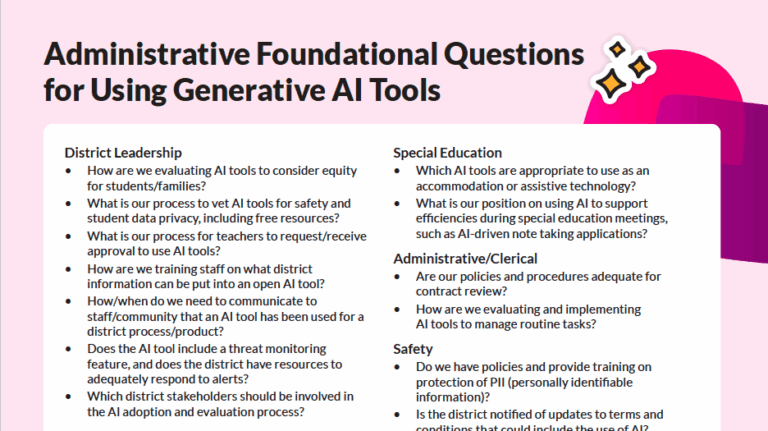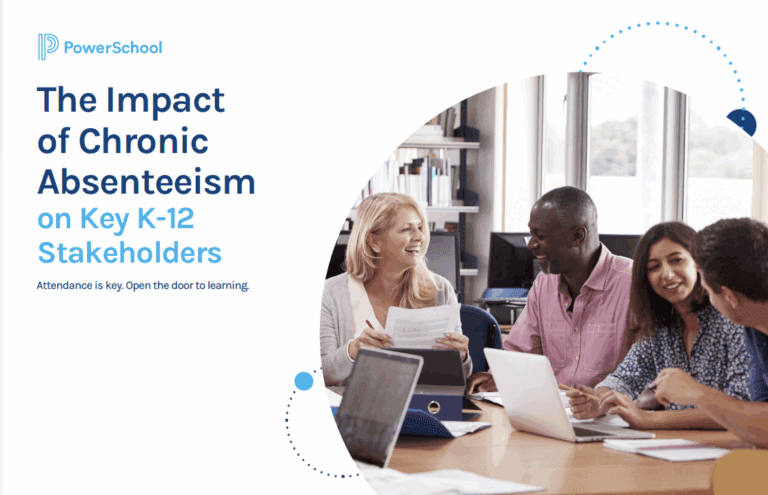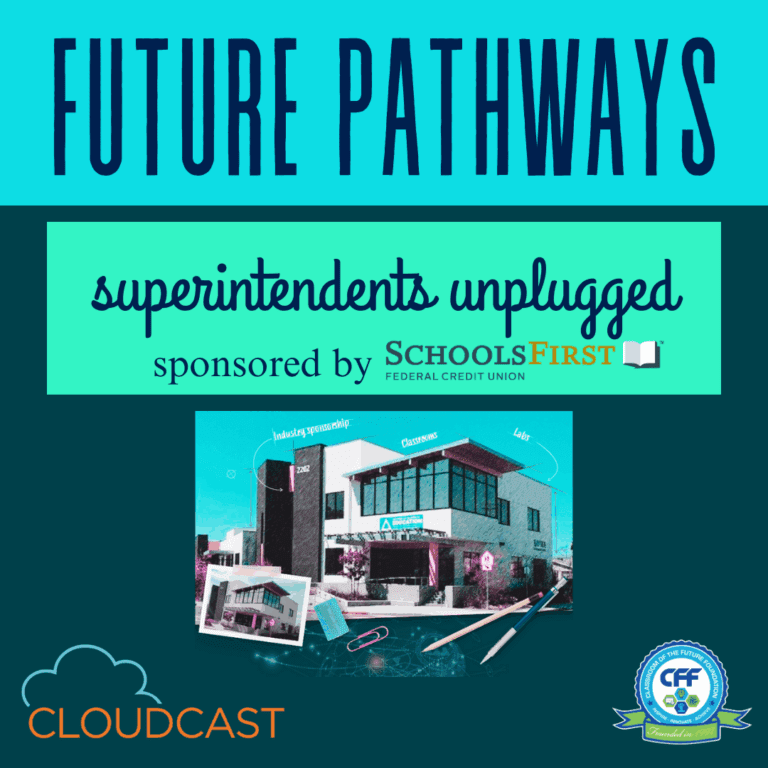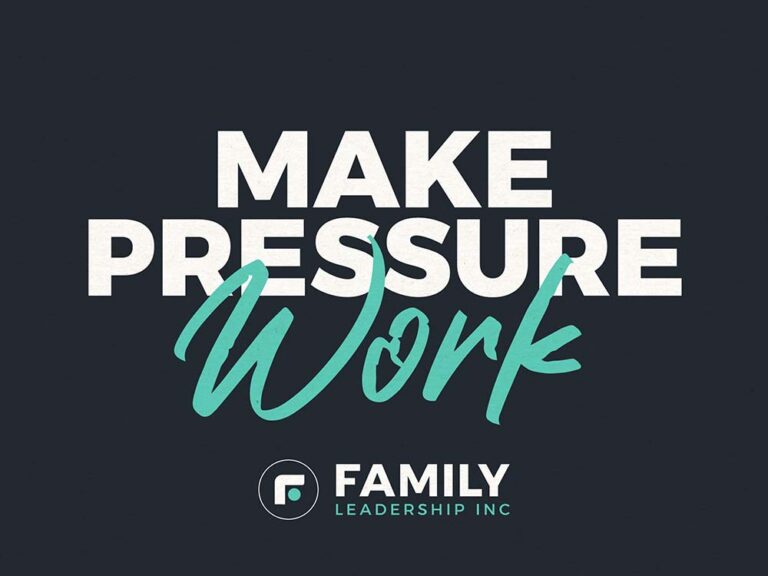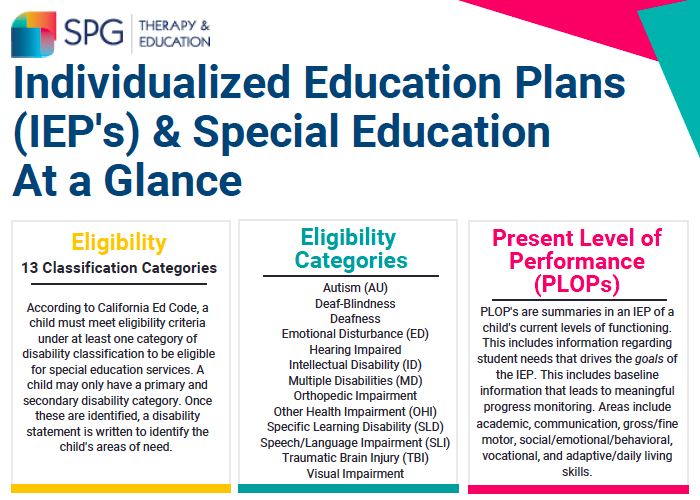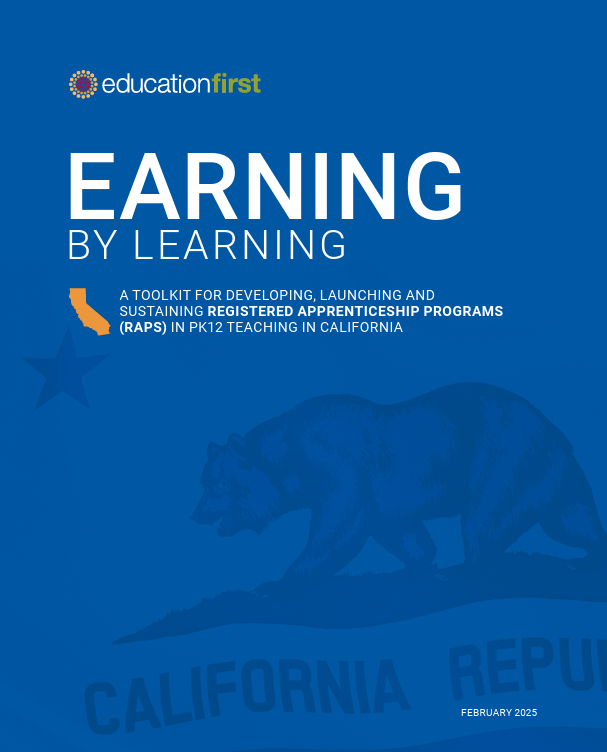
By Kirsten Carr Walker
On a hexagonal wall shelf in my little “cloffice” (endearing term for closet/office), I have a Funko Pop! figure of Hermione Granger. She is visible on Zoom and Teams if I do not blur my background, and she personifies my experiences as an administrator who has leaned into the magical world of special education.
You see, I was “Muggle-born” as a general education, multiple subject credentialed elementary teacher by training who earned a Master’s degree in educational leadership and an administrative credential. In my professional training and certification journey, I think I had a one-day (maybe it was even a half-day) course on special education through UCLA Extension to clear my credential back in Y2K. Yet here I find myself leading and learning as a district expert who supports our elementary principals, teachers, related service providers, parents, and specialized programs in all things special education.
Like Hermione and her famous friend Harry Potter, who stumbled and studied their way through the wizarding world, I have had to learn the rules, spells, and intricacies of special education. And, like Hermione, I think I’m doing a pretty remarkable job, so I thought I would share some of what I have learned along my path through the magical world of special education. My hope is that maybe a nugget of my learning might be helpful to both my fellow Muggle-born admins as well as those of you who might be pure-bloods as special educators and wizards.
Unique and dynamic IEPs — Wands
An Individualized Education Program (IEP) is a lot of things. This term may feel hopeful or dreaded and all the things in between. For educators, it may hold lots of work, legal deadlines and parameters, and lengthy meetings. For parents, it may carry grief and grievances along with optimism and teamwork. A lengthy IEP meeting might feel like “one more thing” on an administrator’s bursting calendar, a barrier of bureaucracy between you and classrooms and campus. Sometimes an initial IEP, especially, might feel like the magical answer to a child’s learning or behavioral challenges — the finish line after interventions, frustrations, SSTs, MTSS, and a 60-day assessment timeline. However, an IEP, this magic wand of sorts, is not a simple answer. Like the individual and connected nature of wands and wizards in the fictional world of Harry Potter, an IEP (both the document and the meeting) has a unique and dynamic nature that holds both promise and hard work.
I often remind general education teachers, principals, and even parents, that the IEP itself is not the finish line, but rather the starting line. At its best and purest purpose, it lays out a collaborative plan that needs to be followed, monitored, and updated, and each IEP should be uniquely tailored to the student. Cookie-cutter IEPs will not channel the magic and growth that special education supports and services can bring. But rather, when crafted collaboratively and correctly, an IEP, like that just-right wand, can be a powerful force for learning and equity. It is our job to harness that energy and magic for the support and growth of each student. Have you ever had one of those IEP meetings that brings team members happy, heartfelt, hopeful tears? They are magical and keep us tethered to the true purpose of an IEP.
Helpful mantras — Spells
Do you have a mantra that helps you focus on the work? A mantra can be a helpful tool to focus and energize yourself. The word mantra is a Sanskrit word that means a tool for the mind. It can be a sound, word, or phrase that you repeat, either silently or aloud. Like spells in the wizarding world, mantras require a specific incantation, clear intent, and practice. They can be very effective at focusing our minds, and mantras may even have mental health benefits.
I have attended and consulted on thousands of IEP meetings at this point in my career. And before each one of them, my mantra is “This is someone’s baby.” I anchor myself in this as I facilitate and notetake through meetings so that each IEP meeting can dynamically, cooperatively, and positively craft those next steps forward toward a free and appropriate public education (FAPE) that is unique and individualized to that student. When a parent gets upset, I adjust the mantra slightly to remind myself that “This is their baby.” Try this mantra out and see what happens.
I also have a core mantra of “I work for kids.” And our students with disabilities are some of the students who need us most. This mantra helps me tap into my why, ignore the adult noise when needed, and do the work that the kids need. It’s a tried and true spell for our work as educators with often increasingly complex and crazy demands on us.
The linear nature of an IEP — Potions

“The Polyjuice Potion is a complex and time-consuming concoction, demanding careful preparation and precise execution.” — Harry Potter and the Chamber of Secrets (J.K Rowling, 1998)
When I came into more of a central office support role and started my slide over into the magical world of SpEd, one of my mentors and supervisors explained the linear simplicity of IEPs to me in a way that changed my whole understanding and approach to them. She explained how new assessment information along with progress toward previous goals and present levels are the starting points to determine needs. From these needs, the team proposes specific goals for improvement. The needs and goals require supports like accommodations and modifications as well as services that might be direct or consultative. And there is the line to FAPE – needs, goals, supports, and services. It is that simple. (But that does not mean that it’s easy.)
Like potions, taught by none other than Severus Snape, IEPs require precision. This precision comes from data and objective information as well as making sure that the needs, goals, supports, and services are outlined with specificity. One wrong ingredient can alter the whole potion, like when Hermione figures out that she must have put a cat hair in her polyjuice potion. Many of us have been in meetings where a lack of specificity leads us down a wormhole of questions and can throw off the whole team. Or we have received an IEP from another district and it is very unclear or not at all representative of the student who just moved into our school. So do yourself and your team a favor by maintaining clarity and staying on that coherent and connected path of a simple (but not easy), linear IEP.
The importance of positivity and integrity — Patronus Charms
A Patronus Charm is one of the most complex charms in the wizarding world. To do one, a wizard must hold a truly positive thought or memory at the same time they are confronting something terrifying. If you are like me, you have had to maintain this delicate and tricky balance in an IEP meeting or beyond. And, as an administrator, it is often our job to help the team maintain a focus on positivity and integrity in the face of disagreement and difficulty.
Staying focused on the student is key. By centering on strengths and having team members who really see the student convey how much they know and care about that student, we can facilitate an IEP process that is positive and more effective. This is a complex task, at times. Sometimes we have contentious parents, and sometimes (let’s be honest) we have contentious or perhaps underprepared or overwhelmed staff. Building positive relationships in an authentic and ongoing way takes time and effort. Preparing for a positive meeting takes time and effort. Being in classrooms and seeing students and staff takes more time and effort. But these steps are required to get that Patronus effect. You either commit to it proactively, or you get slammed by it reactively. So take that time, so that positive relationships, understanding, and touchpoints are intentionally created and cultivated.
When those dreaded dementors, difficulties, and disagreements come our way (and they will), integrity is essential. The word integrity has many nuances — the idea of leading from your values, doing what you say you will do, a state of being complete, and more. The word integrity comes from the Latin word integer meaning whole or complete. Coming to work each day and leading from and for wholeness keeps me grounded and protected, like a Patronus. Cultivating teams that work together for the whole child means that even if there is disagreement, we know that we are grounded in doing what we believe is right and legally defensible. Like many of us, I have been slammed by accusations and complaints, and they always sting. However, I have found that as long as I stay grounded in integrity, I maintain a Patronus-like protection for myself, and I can lead teams through adversity from solid and whole ground.
Hermione reflections
In closing and circling back to my original connection to Hermione Granger, I hope to call those of us “Muggle-born” educators to lean more into the magical world of special education. In “Harry Potter and the Chamber of Secrets,” Hermione says it well when she states, “Being Muggle-born’s no reason not to be good at magic. Not if you really want to be.” (J.K Rowling, 1998) Sometimes special education needs can feel like they are beyond our pay grade or like they should be someone else’s responsibility, but please don’t ever fall into such traps. We are surrounded by amazing wizards in special education, and we can learn a ton from them. We can also seek out professional learning opportunities and books — I love the Every Child Counts Symposium each January from ACSA! And, when we open ourselves to truly understand the IEP process, ground ourselves in kids, look for strengths and positivity, maintain integrity, and surround ourselves with strong teams, we can bring the magic too, if we really want to.
Above all, our aim in special education is quite simply education. Education, done equitably and inclusively, does require a bit of well-crafted magic and still has a ways to go. It feels daunting sometimes, and perhaps as if we might need a time-turner necklace like Hermione used, but we came to education to make a difference. So let’s grab our wands, spellbooks, and friends, so we can all learn and lead with magic …
Kirsten Carr Walker is a Principal on Special Assignment (POSA) for Elementary and Specialized Programs in Conejo Valley Unified School District in ACSA Region 13.










